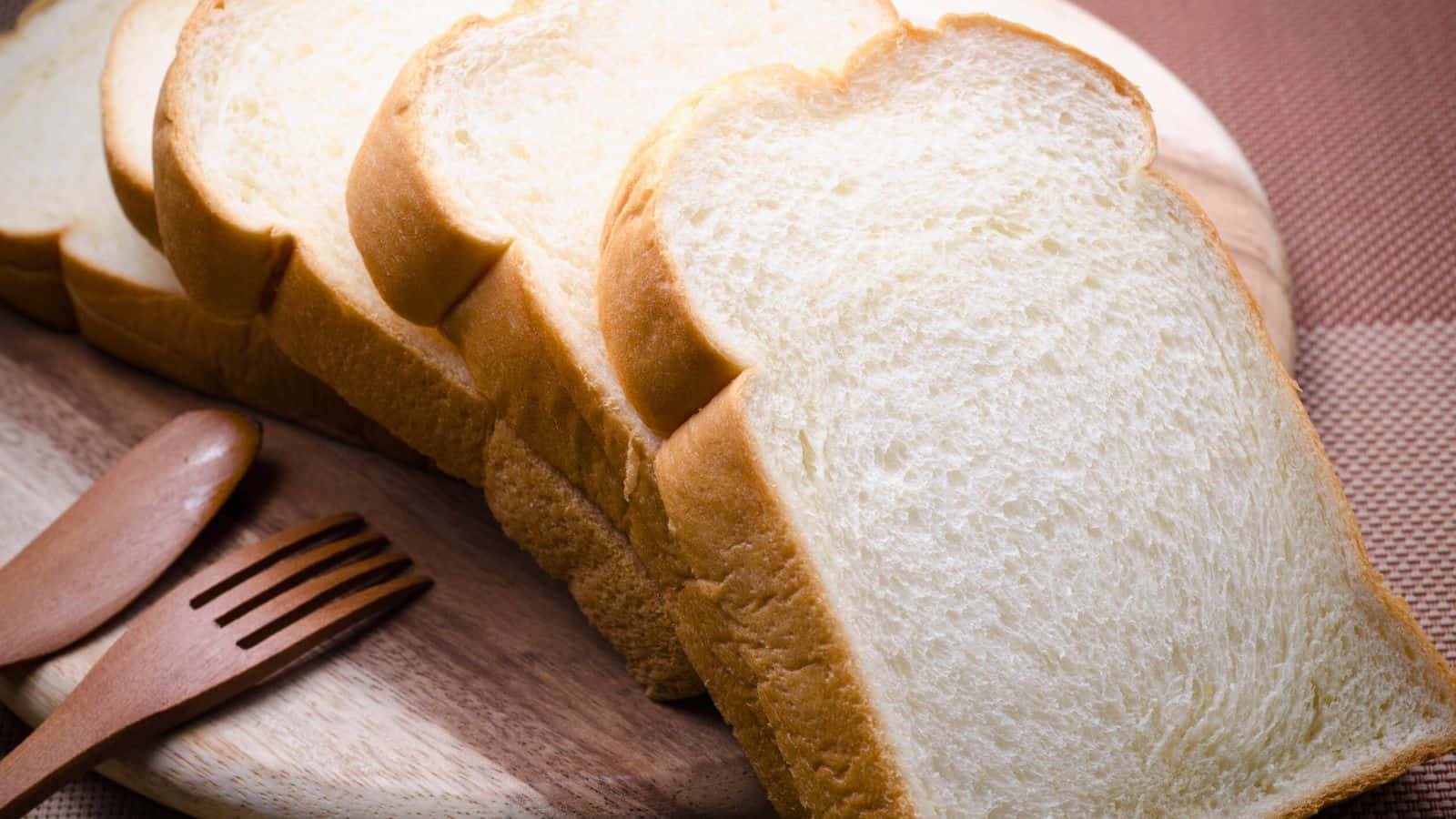Some foods we eat every day can quietly affect our heart health in ways we don’t always notice. It’s easy to grab whatever’s quick and convenient, but certain choices might raise blood pressure, increase cholesterol, or cause inflammation that makes the heart work harder. Knowing these ten foods that may cause heart damage helps you make better decisions without completely changing your routine.
This isn’t about cutting out everything you like or making things complicated. Instead, it’s about being aware of what could be working against your heart so you can make small changes that really matter. When you understand how certain foods affect your body, it becomes easier to pick options that support your health. Taking a little time to learn about these common foods can be a significant step toward maintaining a healthy heart in the long run.
The contents of this article, made available via The Immigrant's Table, are for informational purposes only and do not constitute medical advice. The content presented here is not intended to be a substitute for professional medical advice, diagnosis, or treatment. Always seek the advice of a qualified healthcare provider with any questions you may have regarding a medical condition or dietary changes. Reliance on any information provided by this article is solely at your own risk.

Fried Foods

Fried foods, such as fried chicken and French fries, are often cooked in oils that contain trans fats or are repeatedly heated, which creates harmful compounds. Trans fats are known to raise bad LDL cholesterol and lower good HDL cholesterol, disrupting the balance needed to maintain clean arteries. Additionally, frying adds excessive calories and unhealthy fats, contributing to obesity and inflammation. The combination of these factors can lead to the buildup of plaque in arteries, which increases blood pressure and reduces blood flow to the heart. Frequent intake significantly raises the risk of heart disease.
Fast Food

Often loaded with excessive sodium, unhealthy fats, and calories, fast food can have a negative impact on heart health when consumed regularly. High sodium intake raises blood pressure, increasing the strain on the heart and blood vessels. Many fast food items contain trans fats or high levels of saturated fats, which contribute to elevated levels of LDL cholesterol and the formation of arterial plaque. Frequent consumption may lead to obesity and insulin resistance, both of which are major risk factors for cardiovascular disease. The combination of these effects significantly raises the likelihood of heart problems over time.
Full-Fat Dairy Products

Rich in saturated fats, products like whole milk, butter, and certain cheeses can increase LDL cholesterol levels in the bloodstream. Elevated LDL cholesterol contributes to the formation of plaques inside arteries, narrowing them and restricting blood flow to the heart. This process can lead to atherosclerosis, increasing the risk of heart attacks and strokes. Additionally, some full-fat dairy items contain high amounts of calories, which may promote weight gain if not balanced with physical activity, further burdening the cardiovascular system and increasing disease risk.
Salted Snacks

Excessive sodium intake from salted snacks such as chips and salted nuts can lead to elevated blood pressure, a major contributor to heart disease. High sodium levels cause the body to retain water, increasing the volume of blood the heart must pump and raising the workload on the cardiovascular system. Over time, this added strain can weaken the heart and damage arteries. Additionally, many salted snacks are calorie-dense and may contain unhealthy fats, which together promote obesity and inflammation, further increasing the risk of heart-related complications.
Processed Meats

Processed meats such as sausages, hot dogs, and bacon contain high levels of saturated fats, sodium, and chemical preservatives like nitrates and nitrites. Saturated fats contribute to raising LDL cholesterol, which can accumulate in arteries and lead to blockages. Excessive sodium intake increases blood pressure, placing a strain on the heart and blood vessels. Additionally, preservatives in processed meats have been linked to inflammation and oxidative stress, both of which can damage heart tissues and increase the risk of cardiovascular diseases. Frequent consumption raises the likelihood of heart-related complications.
Ice Cream

Often high in both sugar and saturated fat, ice cream can contribute to weight gain, increased cholesterol levels, and elevated blood sugar. The saturated fats raise LDL cholesterol, which can accumulate in arteries and reduce blood flow to the heart. High sugar content promotes inflammation and insulin resistance, both of which negatively affect cardiovascular health. Frequent consumption may lead to obesity and metabolic issues, increasing the risk of heart disease. The combination of these factors makes regular intake of ice cream potentially harmful to heart function.
Certain Margarines and Spreads

Some margarines and spreads contain trans fats, which are created during hydrogenation to make oils solid at room temperature. These trans fats raise bad LDL cholesterol and lower good HDL cholesterol, disrupting the balance needed for healthy arteries. This imbalance promotes the buildup of plaque inside blood vessels, thereby increasing the risk of heart disease. Even small amounts consumed regularly can have a negative impact. Many spreads also contain added salt and preservatives, which can further strain the cardiovascular system over time. Choosing spreads without trans fats is a healthier choice for your heart.
White Bread and Refined Grains

White bread and other refined grains have been stripped of fiber, vitamins, and minerals during processing, mainly leaving simple carbohydrates. These carbohydrates cause rapid spikes in blood sugar levels after eating, which can increase insulin production and promote fat storage. Over time, this pattern may contribute to insulin resistance and type 2 diabetes, both of which are risk factors for heart disease. The lack of fiber also means less support for healthy cholesterol levels and digestive health. Regular consumption can lead to inflammation and damage to blood vessels, raising cardiovascular risk.
Red Meat (Fatty Cuts)

Fatty cuts of red meat contain significant amounts of saturated fat and cholesterol, both of which can raise LDL cholesterol levels in the blood. Elevated LDL cholesterol is a key factor in the development of atherosclerosis, where plaque builds up inside arteries and restricts blood flow. Consuming large quantities can also increase inflammation and oxidative stress, which can damage blood vessels. Additionally, some red meats contain compounds formed during cooking that may further harm cardiovascular health. Repeated consumption of fatty red meat has been linked to a higher risk of heart attacks and strokes.
Pastries and Baked Goods

Typically made with refined flour, sugar, and unhealthy fats, pastries and baked goods often contain trans fats, which negatively affect cholesterol levels by raising LDL and lowering HDL cholesterol. These foods can cause rapid blood sugar spikes, which, over time, contribute to insulin resistance and inflammation. High sugar and fat content also promote weight gain and metabolic disturbances, both linked to heart disease. Regular consumption can damage blood vessels and increase the risk of hypertension, making these items potentially harmful to cardiovascular health.
Give Your Heart a Break

Keeping your heart healthy doesn’t have to mean big sacrifices or strict diets. It’s more about paying attention to what you eat day to day and making smarter choices when you can. Some foods might seem harmless, but they can quietly cause issues if they become a regular part of your meals. Being aware of these helps you take control without feeling overwhelmed.
Small changes add up over time, and that’s what really makes a difference. You don’t need to be perfect, just thoughtful about what goes on your plate. When you focus on foods that support your heart instead of working against it, you’re giving yourself a great chance to stay healthy longer. Taking a few simple steps now can help keep your heart strong well into the future.
Keep Your Arteries Clog-Free With These Heart-Healthy Foods

Taking care of your heart is essential, and one of the best ways to do that is through your diet. Clogged arteries can lead to serious health issues, but the good news is that the right foods can make a significant difference. By incorporating these 15 heart-healthy foods into your meals, you can support your cardiovascular health and keep your arteries clear.
Read it Here: Keep Your Arteries Clog-Free With These 15 Heart-Healthy Foods
Delicious Nuts to Snack On for a Stronger Heart and Healthier You

When it comes to snacking, nuts are a great choice for anyone looking to boost their heart health. Packed with essential nutrients, they can help lower cholesterol levels and reduce inflammation, making them a perfect addition to your diet. Not only are they delicious, but these 15 nuts are also good for heart health and can support your cardiovascular system.
Read it Here: 15 Delicious Nuts to Snack On for a Stronger Heart and Healthier You






Tell Me What You Think!